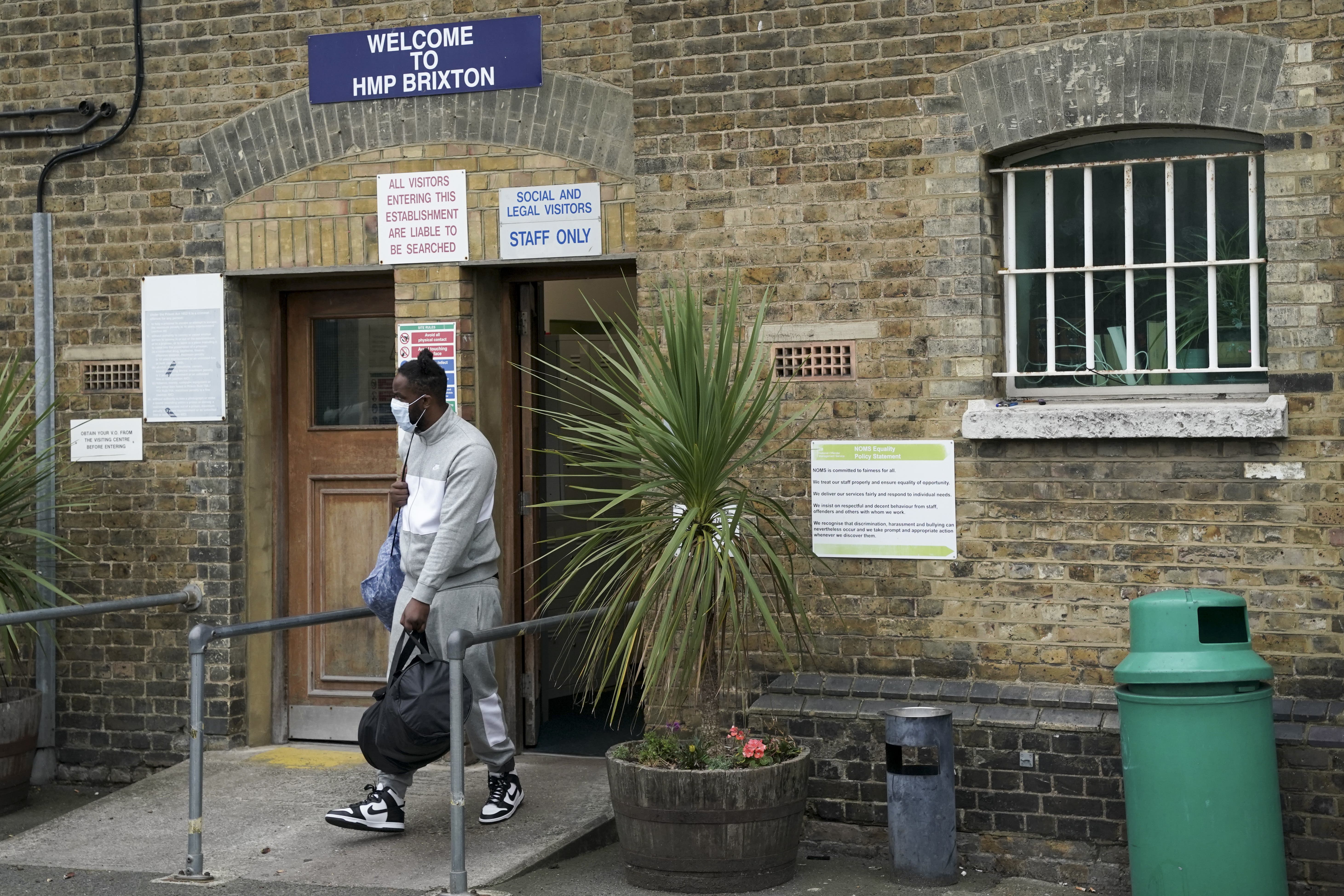Prison population down by 2,000 in a week following early releases
The Government said around 1,750 prisoners were freed early on Tuesday from jails across England and Wales.

Your support helps us to tell the story
From reproductive rights to climate change to Big Tech, The Independent is on the ground when the story is developing. Whether it's investigating the financials of Elon Musk's pro-Trump PAC or producing our latest documentary, 'The A Word', which shines a light on the American women fighting for reproductive rights, we know how important it is to parse out the facts from the messaging.
At such a critical moment in US history, we need reporters on the ground. Your donation allows us to keep sending journalists to speak to both sides of the story.
The Independent is trusted by Americans across the entire political spectrum. And unlike many other quality news outlets, we choose not to lock Americans out of our reporting and analysis with paywalls. We believe quality journalism should be available to everyone, paid for by those who can afford it.
Your support makes all the difference.The adult prison population dropped by more than 2,000 in the week the Government freed hundreds of inmates early.
Ministry of Justice figures showed there were 86,333 prisoners behind bars in England and Wales on Friday.
This is 2 per cent, or 2,188 fewer than the figure recorded at the end of last week, when the number of inmates being held hit another new record high amid the jail overcrowding crisis.
The government said around 1,750 prisoners were freed early on Tuesday from jails across the two nations, suggesting a further 438 people also left under standard release terms.
The drop means the operational capacity for English and Welsh men and women’s prisons is 89,552, indicating there is now cell space for 3,219 criminals.
On Wednesday Prime Minister Sir Keir Starmer defended freeing criminals, including some convicted killers, early from prison as he angrily blamed previous government inaction for forcing him into taking urgent steps to tackle the problem.
This week’s mass exodus came after Justice Secretary Shabana Mahmood announced plans in July to temporarily cut the proportion of sentences which inmates must serve behind bars from 50 per cent to 40 per cent as the MoJ said overcrowding had pushed jails to the “point of collapse”.
Fears were raised that domestic abusers are “slipping through the net” of the government’s early release scheme for prisoners and victims could be placed at grave risk.
Ahead of the release, Isabelle Younane, of leading domestic abuse charity Women’s Aid, said they have concerns the “policy is coming at the price of safety for women and children”.
But Sir Keir has insisted ministers are “doing everything” to make sure domestic abusers are not released early from jail.
At the same time, overwhelmed probation officers warned of a “ticking time bomb” for public safety amid the mass elease.
While HM chief inspector Charlie Taylor said the new government had “no choice” but to free inmates early en masse, earlier this week he repeated his warnings in December to The Independent that projections of a further 30 per cent rise in the prison population by 2028 would require a fundamental rethink of what prison is for.
Warning in his annual report, published on Tuesday, that the “brutalising” conditions in prisons were fundamentally undermining any efforts to reduce reoffending and creating more victims of crime, Mr Taylor warned it was inevitable that some of those freed early would go on to commit further crimes.